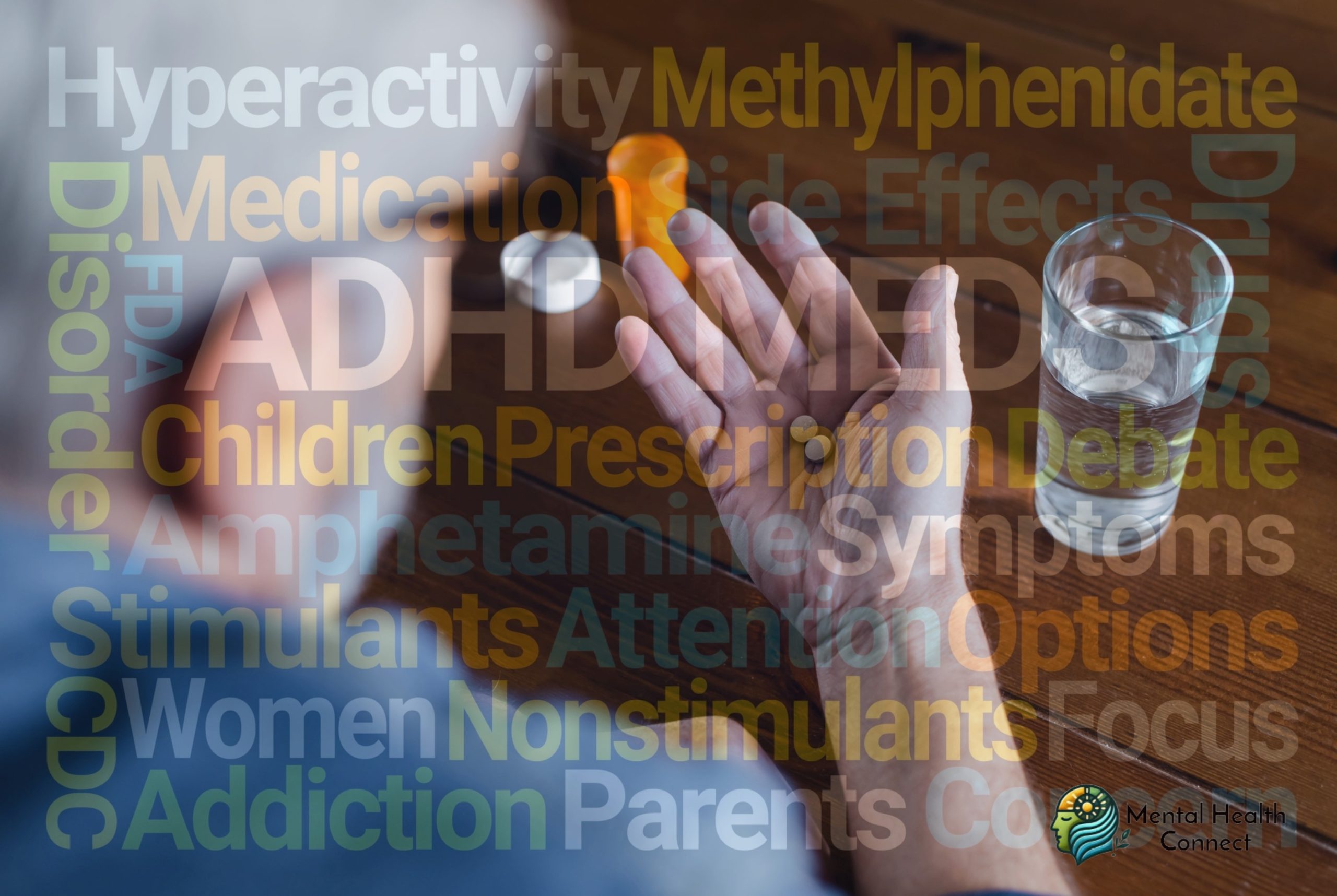ADHD and Addiction: Exploring the Connection

Attention-deficit/hyperactivity disorder (ADHD) and substance use disorders (SUDs) share a complex, bidirectional relationship that has significant implications for diagnosis, treatment, and recovery. Research consistently shows that individuals with ADHD face substantially higher risks of developing addiction problems compared to the general population. Understanding this connection can help clinicians provide more effective care and help affected individuals better manage both conditions.
The Statistical Reality
The numbers paint a clear picture of this relationship:
- Adults with ADHD are 2-3 times more likely to develop a substance use disorder compared to those without ADHD
- Approximately 25% of adults seeking treatment for substance use disorders meet diagnostic criteria for ADHD
- The lifetime prevalence of alcohol use disorder among adults with ADHD is nearly twice that of the general population
- Studies suggest that 20-40% of individuals with ADHD will develop a substance use disorder during their lifetime
These statistics aren’t merely coincidental they point to underlying mechanisms connecting these two conditions.
The Neurobiological Connection
Both ADHD and addiction involve dysregulation in the brain’s reward and executive control systems:
Dopamine Dysfunction
The neurotransmitter dopamine plays a crucial role in both conditions:
- In ADHD, dopamine signaling is often impaired, particularly in pathways involved in motivation, reward processing, and executive function
- Substances of abuse typically increase dopamine activity in the brain’s reward pathways
- Individuals with ADHD may be drawn to substances that temporarily normalize dopamine function, creating a neurochemical basis for self-medication
Executive Function Deficits
Executive functions the cognitive processes that regulate behavior, decision-making, and impulse control are compromised in both conditions:
- ADHD involves impairments in response inhibition, working memory, planning, and emotional regulation
- These same executive function deficits increase vulnerability to addiction by impairing one’s ability to resist immediate rewards despite negative consequences
- Once addiction develops, executive function often deteriorates further, creating a negative feedback loop
The Self-Medication Hypothesis
One prominent theory explaining the ADHD-addiction connection is the self-medication hypothesis, which suggests that individuals with ADHD often turn to substances to alleviate uncomfortable symptoms or improve functioning:
- Stimulants like cocaine or methamphetamine may temporarily enhance focus and reduce restlessness
- Cannabis may help some individuals with ADHD manage emotional dysregulation or sleep difficulties
- Alcohol might temporarily reduce the mental “noise” and hyperactivity that many with ADHD experience
Research supports this theory, with multiple studies showing that many individuals with undiagnosed or untreated ADHD report using substances specifically to manage their ADHD symptoms before receiving proper treatment.
Risk Trajectory: From Childhood to Adulthood
The ADHD-addiction connection often follows a developmental path:
Childhood and Adolescence
- ADHD symptoms typically emerge in childhood, often years before substance use begins
- Children with ADHD often experience academic difficulties, social rejection, and lower self-esteem
- These challenges create psychological vulnerabilities that increase addiction risk
- Impulsivity and sensation-seeking, core features of many ADHD presentations, can lead to earlier experimentation with substances
The Critical Transition Period
- The transition to increased independence occurs when executive functions are still developing
- Academic and occupational demands increase precisely when ADHD symptoms can cause the most disruption
- Peer influence and the availability of substances increase simultaneously
Adulthood Complications
In adulthood, the relationship becomes more complex:
- Untreated ADHD can lead to chronic underachievement, relationship difficulties, and financial problems
- These stressors further increase addiction vulnerability
- Once addiction develops, it can mask or exacerbate ADHD symptoms, complicating diagnosis and treatment
Genetic and Environmental Overlap
The connection between ADHD and addiction isn’t merely behavioral—there’s substantial evidence for shared genetic and environmental risk factors:
Genetic Factors
- Family and twin studies show significant heritability for both conditions
- Several genetic variants affecting dopamine and norepinephrine systems have been implicated in both ADHD and addiction vulnerability
- Shared genetic factors may explain approximately 75% of the comorbidity between ADHD and substance use disorders
Environmental Influences
Common environmental risk factors include:
- Early life adversity and trauma
- Family dysfunction
- Socioeconomic disadvantage
- Exposure to toxins or substances during prenatal development
Treatment Considerations and Challenges
The connection between ADHD and addiction creates unique treatment challenges:
Medication Dilemmas
- Stimulant medications (the first-line treatment for ADHD) have abuse potential
- Clinicians may hesitate to prescribe stimulants to individuals with addiction histories
- However, evidence suggests that appropriate stimulant treatment for ADHD actually reduces, rather than increases, substance use in many patients
Integrated Treatment Approaches
Effective management typically requires addressing both conditions simultaneously through:
- Comprehensive assessment to accurately identify both ADHD and substance use issues
- Consideration of non-stimulant ADHD medications (atomoxetine, guanfacine, bupropion) when addiction concerns are significant
- Evidence-based psychotherapies that address both conditions, such as cognitive-behavioral therapy and contingency management
- Skills training in executive function, emotional regulation, and impulse control
- Peer support and recovery communities that understand the dual challenges
Prevention Strategies
Understanding the connection between ADHD and addiction enables more effective prevention efforts:
- Early identification and treatment of ADHD, particularly before adolescence
- Psychoeducation for individuals with ADHD about their increased addiction vulnerability
- Development of healthy coping strategies for managing ADHD symptoms
- Regular screening for substance use in adolescents and adults with ADHD
- Family-based interventions that address both ADHD symptoms and addiction risk factors
Success Stories and Recovery Possibilities
Despite the challenges, many individuals with both ADHD and addiction achieve lasting recovery and improved functioning:
- Proper diagnosis and treatment of previously unrecognized ADHD often serves as a turning point in addiction recovery
- Skills developed in addiction recovery (routine, mindfulness, support systems) often benefit ADHD management
- Many treatment programs now specialize in addressing these co-occurring conditions
The connection between ADHD and addiction represents more than simple comorbidity it reflects shared neurobiological mechanisms, developmental pathways, and genetic influences. By recognizing and addressing this connection, clinicians can provide more effective interventions, and individuals affected by these conditions can better understand their experiences and access appropriate help.
For those living with both ADHD and addiction, or supporting someone who does, recognizing this connection is the first step toward comprehensive treatment that addresses the full spectrum of needs. With proper support, individuals can develop effective strategies to manage ADHD symptoms while maintaining recovery from substance use disorders, ultimately achieving stability and improved quality of life.
-
 How to Support Someone with OCDApril 17, 2025
How to Support Someone with OCDApril 17, 2025 -


Leave a Reply